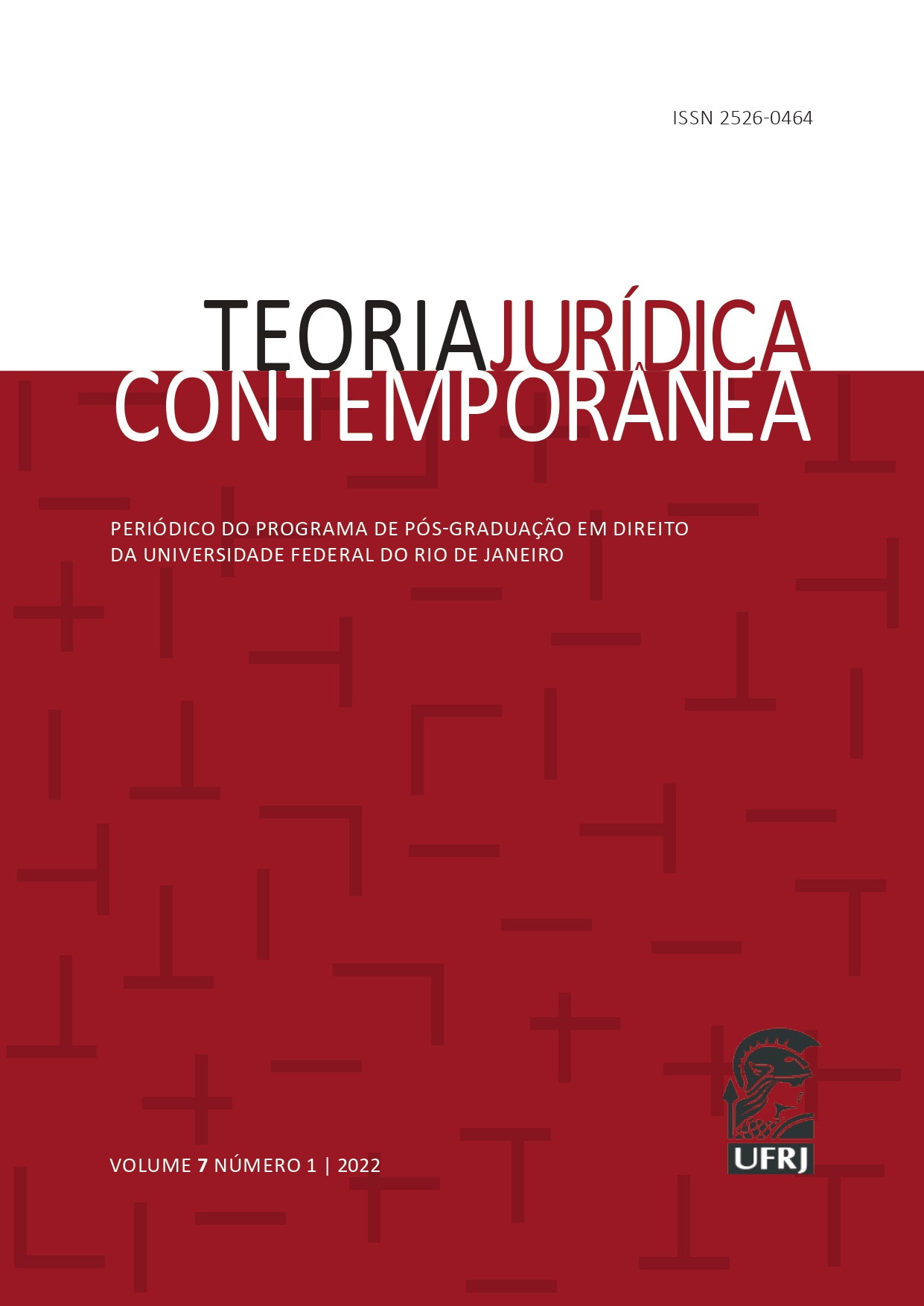ESTADO ATUAL DO DIREITO AMBIENTAL: VISÕES EM CONFLITOS, CAPTURAS POLÍTICAS E CRÍTICA.
DOI:
https://doi.org/10.21875/tjc.v7i0.49162Keywords:
problemas socioambientais, Direitos Ambientais, giro neoliberal, teoria críticaAbstract
O Brasil vive atualmente um complexo conjunto de crises socioambientais que colocam em risco as condições materiais e simbólicas das vidas humanas, não humanas e o próprio planeta. Os diagnósticos socioambientais evidenciam a redução da qualidade ambiental e revelam a multidimensionalidade constituinte das crises socioambientais, que não é apenas ecológica, mas igualmente política. A arqueologia do Direito Ambiental evidencia a potência de suas raízes críticas, os tensionamentos entre capitalismo, meio ambiente, Direito e Estado, bem como os avanços e retrocessos. O Direito Ambiental contemporâneo é diverso em gênero temático, em especialidades e em visões. Na década de 2010-2020, há fortes evidências de que houve um giro neoliberal do Direito Ambiental, caracterizado pela captura do Estado Brasileiro por interesses econômicos hegemônicos que flexibilizaram o papel do Estado e a legislação ambiental, neutralizando a potência crítica, o que pode levar ao aprofundando das crises socioambientais e do agravamento dos riscos para a vida em todas as suas formas. É preciso apostar na (re)construção do potencial crítico e político dos Direitos Ambientais.
Downloads
Published
Issue
Section
License
The authors who publish in this journal agree with the following terms:
1. The authors maintain the copyright and grant the journal the right of first publication, with the work simultaneously licensed under the Creative Commons Attribution License that allows the sharing of the work with recognition of authorship and initial publication in this journal.
2. Authors are allowed to assume additional contracts separately, for non-exclusive distribution of the version of the work published in this journal (e.g., publishing in an institutional repository or as a book chapter), with acknowledgment of authorship and initial publication in this journal.
3. Authors are allowed and encouraged to publish and distribute their work online (e.g., in institutional repositories or as a personal page) at any point before or during the editorial process, as this may generate productive changes, as well as increase the impact and citation of the published work (See The Effect of Open Access).

This work is licensed under a Creative Commons Attribution-ShareAlike 3.0 Brazil License.

